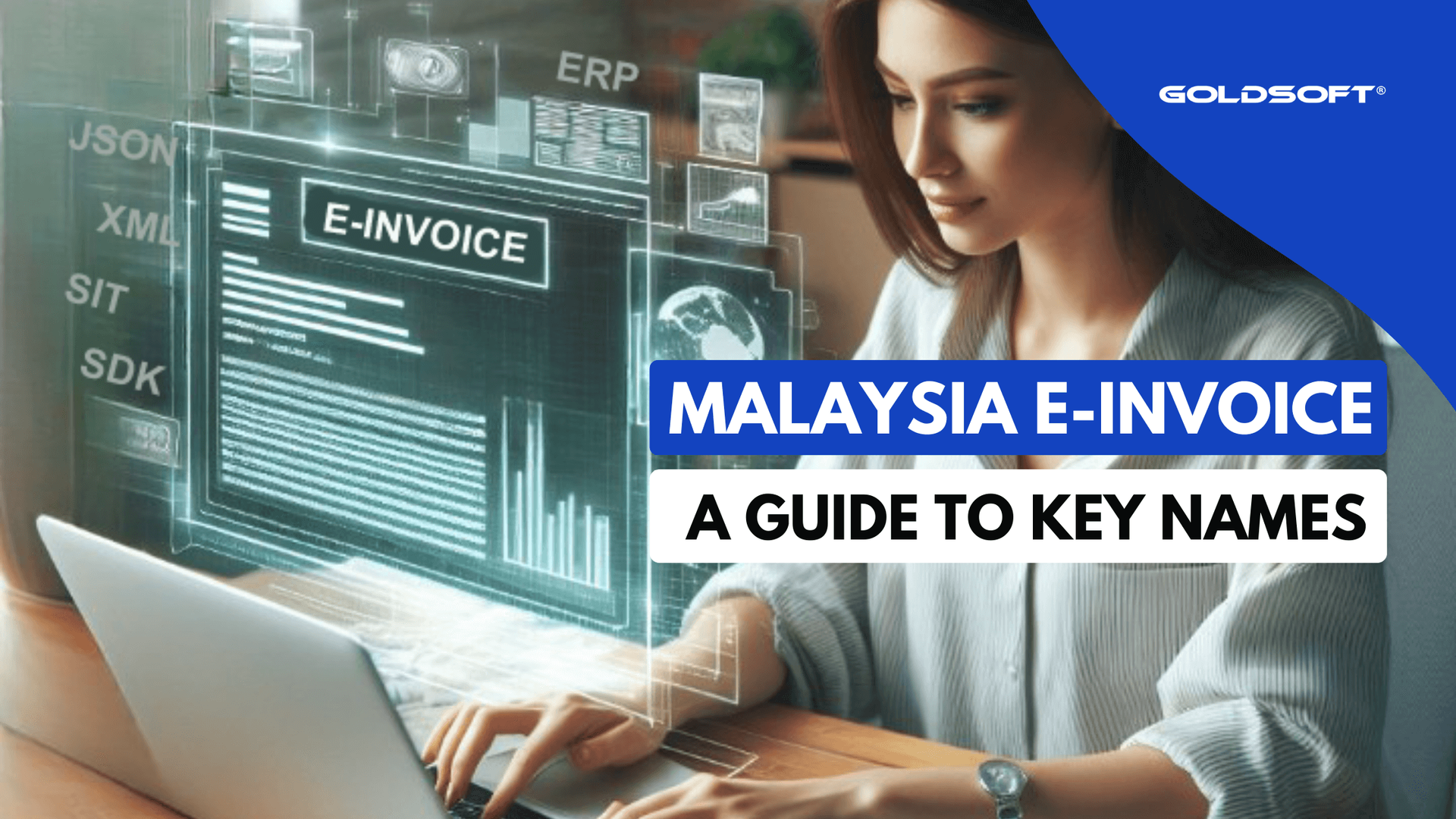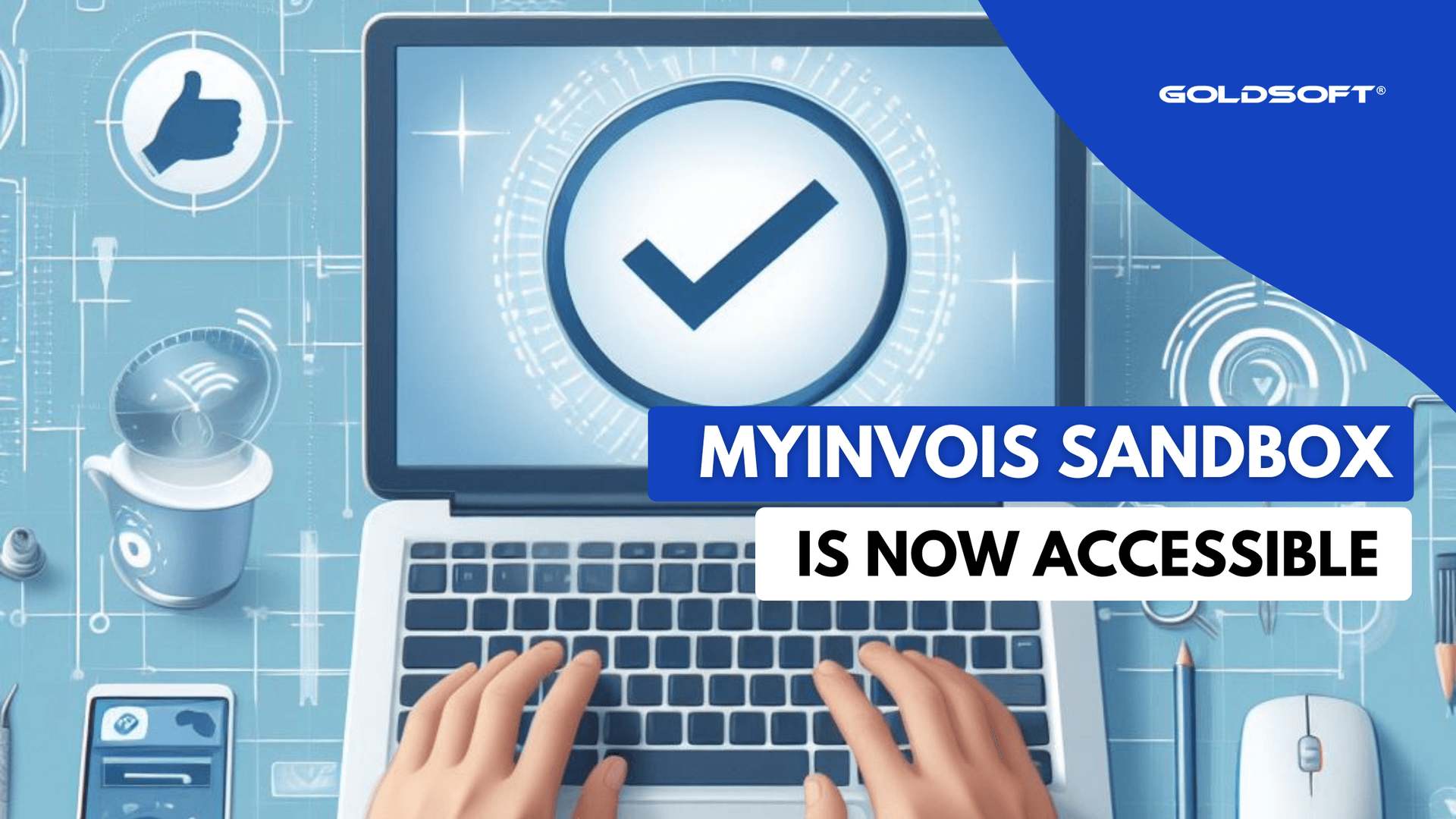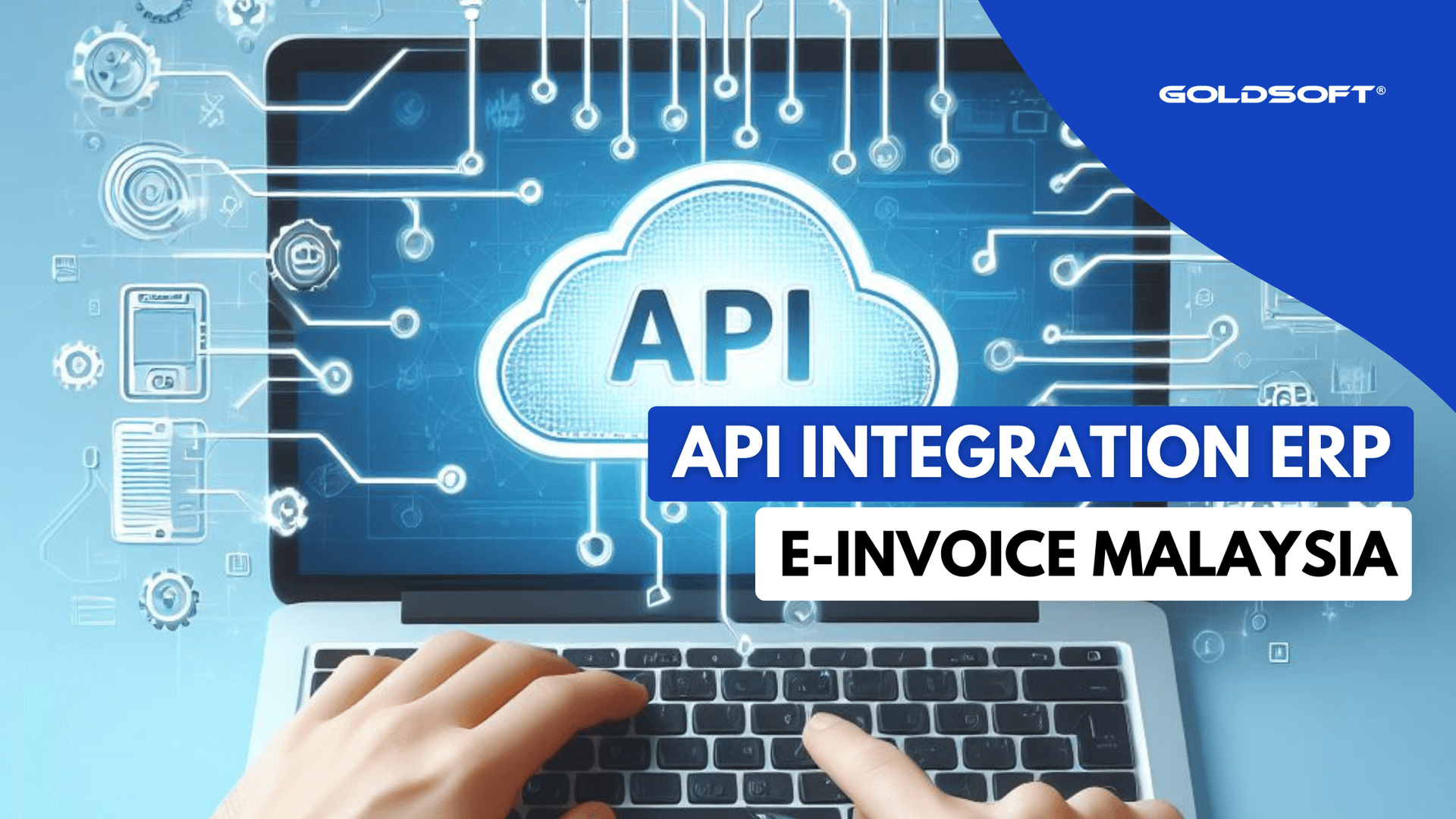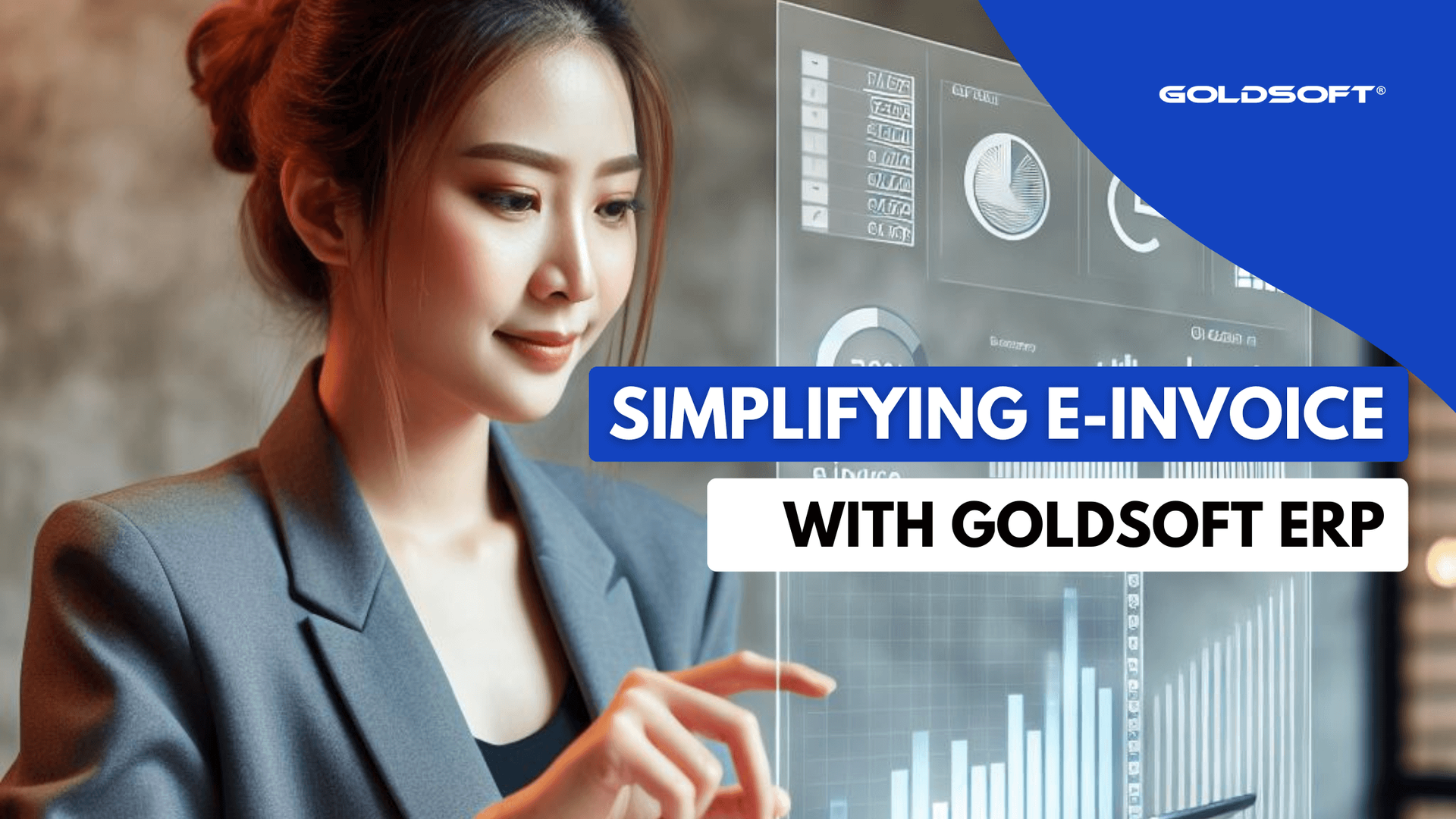E-Invoice Malaysia: A Guide to Key Names and Definitions for Tax Compliance Preparation
E-invoices in Malaysia: Key Names You Need to Know

Malaysia's shift towards a digital economy involves a major transformation in how businesses handle invoices. The new e-invoice initiative, mandated for all taxpayers by 1 July 2025, brings greater efficiency, transparency, and security to business transactions. This guide simplifies the key names and concepts you'll encounter in Malaysia's E-invoice landscape, equipping you for a smooth transition.
Check out Malaysia e-invoice key names and definitions:
1. IRBM
The Inland Revenue Board of Malaysia (IRBM), also known as Lembaga Hasil Dalam Negeri Malaysia (LHDNM) in Malay, is the government agency responsible for administering and enforcing taxation laws in Malaysia.
2. MDEC
Digital Economy Corporation Malaysia (MDEC): The government agency responsible for driving Malaysia's digital economy transformation, potentially involved in promoting and facilitating e-invoicing adoption among businesses.
3. PEPPOL
Pan-European Public Procurement Online (PEPPOL): An international network facilitating secure electronic document exchange, including e-invoices, among businesses and government agencies.
4. TIN
Tax Identification Number (TIN) is an INCOME TAX NUMBER as per existing records with the Inland Revenue Board of Malaysia (HASiL).
5. API
Application Programming Interface (API) is a collection of predefined rules and protocols that facilitate communication between different applications.
6. B2B
B2B stands for "Business-to-Business" which refers to transactions, interactions, or relationships between two or more businesses. It represents the exchange of goods, services, or information between businesses.
7. B2C
B2C stands for "Business-to-Consumer" which describes transactions, interactions, or relationships from a business to end consumer. It refers to the process of selling products or services directly to end-users or customers for their personal use or consumption.
8. B2G
B2G stands for “Business-to-Government” which refers to commercial transactions and interactions from businesses to government entities at various levels, such as local, state, or national governments.
9. e-Invoice
A digital version of a traditional paper invoice, used for billing and payment purposes, transmitted electronically between businesses. It contains information such as supplier’s and buyer’s details, item descriptions, quantities, prices, taxes, and total amounts, which recorded the transactional data arising from day-to-day business operations. This includes the purchases and receipt of services from foreign suppliers, and other examples of self-billed e-Invoice.
10. Credit Note
If a customer returns a damaged item or the suppliers intends to make adjustments due to various reasons (e.g., discount provided, incorrect amount delivered), the supplier will issue a credit note to adjust the amount owed, ensuring accurate billing. Corresponding references to the associated invoices should be clearly specified in the face of the credit note to ease reconciliation.
11. Debit Note
It adds an amount to the originally stipulated total. For example, when a customer requests additional services or supplier incurs additional costs such as expedited shipping, this results in an increase in the overall invoice amount. Any corresponding references to the associated invoices should be clearly specified in the debit note to ease reconciliation.
12. Refund Note
When a customer has paid for a product or service and subsequently returns the product or cancels a service, they become eligible for a refund. The refund note e-Invoice acknowledges the return and specifies the refunded amount.
14. MSME
Micro, Small and Medium-sized Enterprises whose revenue numbers fall below certain limits.
15. My Invoice Portal
MyInvois Portal is a user-friendly web application developed by IRBM that provides taxpayers an intuitive interface to access and perform essential e-invoicing tasks.
16. My Invoice System
MyInvois System, developed by IRBM, is an e-invoicing system designed to streamline the exchange and management of e-Invoice in a structured electronic format between suppliers and buyers, ensuring a seamless process.
17. QR Code
Quick Response (QR) Code containing encoded data that typically includes information for a locator or reference, as well as an identifier.
18. SGML (ISO 8879)
Standard Generalized Markup Language (International Organization for Standardization 8879) is a standard for defining generalized markup languages for documents.
19. SST
Sales Tax or Service Tax (SST) that is imposed pursuant to Sales Tax Act 2018 or Service Tax Act 2018 respectively. Sales Tax and Service Tax are single-stage taxes which are levied on all locally manufactured/ imported taxable goods and certain prescribed taxable services (acquired locally or imported), respectively.
20. XML
Extensible Markup Language (XML) is a markup language that offers a set of rules for defining and structuring data in a flexible and extensible manner.
21. JSON
JavaScript Object Notation (JSON) is a lightweight text-based data interchange format that is simpler to read and write as compared to XML.
22. UBL
Universal Business Language (UBL) is an open library of standard electronic XML business documents designed to facilitate the digital exchange of business information. UBL provides a comprehensive suite of schemas that define common business documents like purchase orders, invoices, dispatch advices, and receipts. These documents can be used across different industries and regions, promoting interoperability and seamless integration between systems. UBL 2.1 refers to (Universal Business Language Version 2.1)
23. ERP
Enterprise Resource Planning (ERP) is a type of software system that helps organisation to automate and manage core business operations, such as Goldsoft ERP system.
24. SDK
A Software Development Kit (SDK) is a collection of tools, libraries, and resources that developers use to create software applications for a specific platform or framework.
25. SIT
System Integration Testing (SIT) focuses on overall integration testing of integrated components to ensure interactions and interfaces between different systems perform as expected
Starting from August 1st, 2024, e-invoicing will become mandatory for businesses with income or annual sales exceeding RM100 million.
Here's the implementation timeline by targeted taxpayers and their respective dates:
- Taxpayers with an annual turnover or revenue of more than RM100 million1 August 2024
- Taxpayers with an annual turnover or revenue of more than RM25 million and up to RM100 million1 January 2025
- All taxpayers1 July 2025
Source:
- E-Invoice Guideline (Version 1.0)
- E-Invoice Guideline (Version 2.2) (published on 9 February 2024) https://www.hasil.gov.my/en/e-invoice/guidelines/
Need help on e-invoicing? Goldsoft is here to assist!
We can help address your current e-invoicing needs. Contact us at 603-2732 8833/ 016-6611086 or fill up the form below to discuss how we can provide an e-invoice-ready ERP solution to ensure a smooth and efficient transition.
Find out more about e-Invoice?
Thank you for your inquiry.
We will get back to you as soon as possible.
Please try again later.
Get In Touch:
Thank you for your inquiry.
We will get back to you as soon as possible.
Please try again later.
Related Articles
HEADQUARTERS
Goldsoft Sdn. Bhd.
199701012508 (428004-P)
VO5-07-07 & 08, Signature Office,
Lingkaran SV, Sunway Velocity,
55100 Kuala Lumpur, Malaysia.
General Line: 03-2732 8833
Sales Line: 016-6611 086
Email: marketing@goldsoft.com.my
@ Copyright 2009-2023 Goldsoft Sdn. Bhd. I Company Registration 199701012508 (428004-P). All Rights Reserved.
Retail Inventory ERP System / Trading Distribution ERP System / Retail POS System / Consignment Inventory System / Warehouse System / e-Commerce
Image by Freepik



